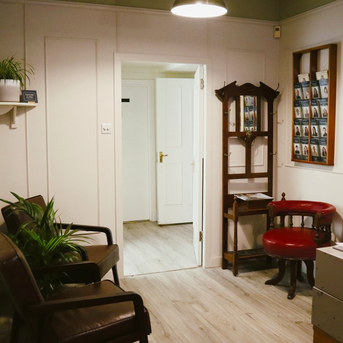
Our practitioners
We are proud to have a team of highly skilled and experienced practitioners who are dedicated to providing the best possible care to our patients. Our practitioners come from a variety of backgrounds and bring a diverse range of expertise to the table. Whether you are seeking help with a specific health concern or are simply looking to improve your overall well-being, our practitioners are here to listen and support you on your journey to optimal health.
All practitioners
-

Wendy Kelly
Wendy qualified in 2002 with a BSc(Hons) in Phytotherapy. Since then she has practiced in Fife, Angus and the Lothians. She is a member of the National Institute of Medical Herbalists.
-

Sara Hennessy
Sara is qualified Medical Herbalist, Ayurvedic Therapist and Yoga teacher, holding an MSc. in Western Herbal Medicine from Middlesex University.
-

Dee Atkinson
Dee is the senior herbal practitioner at Napiers the Herbalists in Edinburgh. She runs a general medicine clinic with a special interest in women’s health, managing hormonal health and ageing. More recently, Dee set up the Napiers Long Covid Clinic to facilitate an integrated approach between doctors, herbalists and nutritionist to this new disease.
-

Clare McQuade
Clare began training at Edinburgh’s Napier University in 2005, gaining a Bachelor of Science Degree in Herbal Medicine in 2009. She joined the Napiers Clinic team shortly after her graduation, initially working in the dispensary before beginning her herbal practice in 2010. Since then she has been a key member of our clinical team, working alongside Dee Atkinson in running the general herbal clinics, as well as heading the Baby & Child Clinic.
-

Thanos Razis
Thanos is a Medical Herbalist with a BSc(hons) from Westminster University and 14 years of experience. He practises as a Herbalist and Orthopaedic Acupuncturist at Napiers in Edinburgh and at Napiers Bathgate. He has special interest and experience in chronic conditions such as Lyme, Long Covid and Chronic Fatigue as well as stress, skin conditions and menopause.
-

Alan Hunter
Alan is a fully qualified Five Element Acupuncturist and has been practising this wonderful system of medicine at Napiers Clinic in the West End of Glasgow for the past 18 years.
-

Angela MacRitchie
Angela practices Herbal Medicine at Edinburgh & Glasgow, as well as with the Napiers CLAID Clinic.
-

Audrey Marchbank
Audrey is a Medical Herbalist, graduating in 2007 with a BSc (Hons) in Herbal Medicine & Phytotherapy from Edinburgh’s Napier University and is a registered member of the National Institute of Medical Herbalists (MNIMH). Audrey is a practicing member within the Napiers CLAID Clinic.
-

Bettina Horvath
As a fully qualified, experienced Holistic Therapist, Bettina works with clients on a one-to-one basis to establish an optimal treatment plan or therapy to best support your skin health and well-being.
-

Cat Rush
Cat offers a range of massage including holistic, deep tissue, trigger point therapy, advanced sports stretching and pregnancy massge.
-

Claire Goulding
Claire is an experienced Western Medical Herbalist (BSc), a member of the National Institute of Medical Herbalists (NIMH) and works at Napiers online clinic.
-

Clare Holohan
Clare is an experienced medical herbalist based in the West Highlands of Scotland, home to deer, livestock, ticks, and Lyme disease. She works for the Napier's CLAID clinic on a Thursday morning.
-

Cybele Haim
Cybele is a passionate Sophrologist and founder of Chamapola, Healing Yourself - Healing Together.
-

Dean Harley
Dean is a Naturopathic Practitioner experienced in Nutrition and Herbal Medicine. With interests in nerve problems, cardiovascular health, digestive disorders as well as male and female reproductive system wellbeing.
-

Isabelle Obert de Thieusies
Isabelle has over 20 years helping individuals and couples achieve their fertility goals through nutrition.
-

Jacqui Penman
With a background in workplace wellbeing, public healthcare and delivering holistic cancer support Jacqui has followed her interest in holistic health and self-care practices to retrain as a Shiatsu therapist with The Shiatsu School Edinburgh, qualifying in 2023 after three years of study.
-

Jill McLaggan
Jill is a fully qualified and insured Advanced Clinical Massage Therapist offering Outcome Based Treatments
-

John Kennedy
John is a friendly and experienced counsellor offering 1-1 sessions on Fridays at Napiers Clinic in Edinburgh city centre and online via FaceTime/Skype. He has worked in private practice supporting people for over 18 years and brings a wealth of experience.
-

Kate Swaine
Kate is a BANT registered Nutritionist who owns and runs the Edinburgh Clinic of Nutrition. She trained for three and a half years at Patrick Holford's renowned Institute of Optimum Nutrition in London and is currently studying with The Institute of Functional Medicine in the US.
-

Kim Stirling
Kim is qualified in Aromatherapy Massage and Indian Head Massage. Working with the needs of her massage clients led to a deeper interest in their health and Kim studied the BSc (Hons) Herbal Medicine degree at Napier University, Edinburgh. Kim is one of the lead herbalists within the Napiers CLAID Clinic and sees many patients.
-

Kirstin Bruges
Kirstin is a fully qualified member of the Society of Homeopaths and holds an RSHom distinction in Classical Homeopathy. Kirstin qualified from the Northwest College of Homeopathy's four-year training course in Manchester.
-

Lynn Bennett
Lynn is a registered osteopath and has been practicing osteopathy for nineteen years. She studied osteopathy and cranial sacral therapy at the European School of Osteopathy and graduated in 1991. Lynn has a background in physiotherapy and is trained in structural, craniosacral, functional, fascial and visceral osteopathy.
-

Malgorzata Pilaszek
Malgorzata graduated from the College of Naturopathic Medicine where she studied Western Herbal Medicine and Naturopathic Nutrition /Diplomas in Herbal Medicine (2017), Naturopathy (2017), and Naturopathic Nutrition (2020). She is also qualified in KORE Therapy, Anmo-fu - 5 Element Abdominal Massage, Craniosacral Balance and Stress Release Therapy and Cupping. Her first degree is a PhD in History.
-

Margaret Fraser
Margaret practices Naturopathic Nutritional Therapy at Napiers Edinburgh.
-

Mark Plumridge
Mark runs the podiatry clinic, offering diagnosis and treatment of various disorders relating to the feet, ankles, legs and lower back. He offers podiatry, chiropody, orthotics and nail surgery.
-

Mary Gapinski
Mary is a qualified therapist in Swedish, Indian and Thai Foot Massage.
-
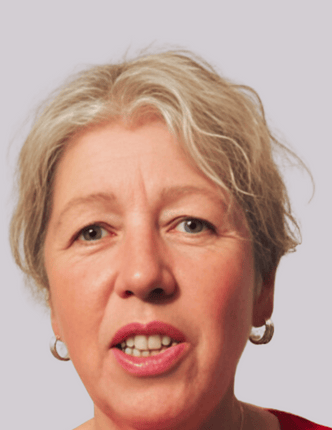
Melissa Ronaldson
Melissa qualified from Middlesex University in 2000. She runs a general herbal practice from her boat, The Herbal Barge, which is based on the river Lea in North London. Melissa joined the CLAID Clinic Co-operative to work collaboratively in an integrated and specialised context to support patients with long covid.
-
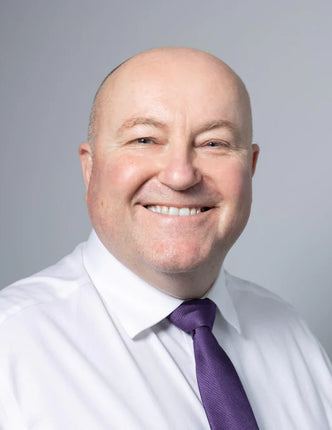
Mike Nicholson
Mike is a body worker and NLP Practitioner who is passionate about working with the person as a whole; offering treatments that integrate body and mind.
-

Monica Wilde
Monica has a Masters degree in herbal medicine from the University of Central Lancashire. She is the research herbalist heading up the Napiers CLAID Clinic. The CLAID Clinic specialism is Lyme disease Borrelia burgdorferi and co-infections - crypto-infections Bartonella, Babesia, Rickettsia, Erlichia, Anaplasma, Mycoplasma, etc. A research herbalist is not the same as a medical herbalist and Monica does not run a general clinical practice. This allows her to focus on Lyme disease and bacterial and viral infections.
-

Natasha Lloyd
Natasha is an experienced and qualified medical herbalist in Western herbal medicine, a forager and mycotherapist. As well as practicing as part of Napiers' general herbal medicine practice, she also sees patients as part of the CLAID Clinic.
-

Nikki Biddiss
Nikki was awarded a first class honours degree in Herbal Medicine from the University of East London and trained at clinics in Glasgow and London. She was also awarded the Arthur Barker prize for her final examination grades. Nikki also has ITEC Diplomas in Holistic Massage and Aromatherapy. She is a member of the National Institute of Medical Herbalists which is the UK’s leading professional body representing herbal practitioners. NIMH members follow a strict code of conduct and are committed to ongoing and continual practitioner development and training.
-

Ona Madorell
Ona Madorell is a qualified Naturopathic Nutritionist, graduating with distinction from the College of Naturopathic Medicine (CNM). She has further enhanced her expertise through a course in blood test interpretation and a postgraduate program focused on the microbiome.
-

Pearlyn Quan
Pearlyn is a licensed acupuncturist and a registered member of the Acupuncture Society, and is fully insured to practice acupuncture, tuina, cupping and moxibustion.
-
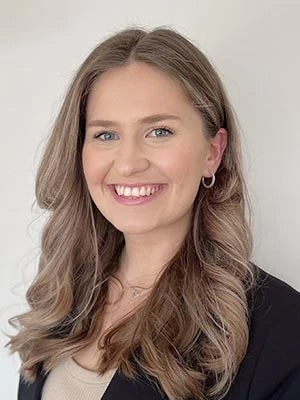
Rebecca Traylen
Rebecca is an Associate Nutritionist, specialising in gut health and women's health, from hormone imbalance to fertility, pregnancy and beyond.
-

Satya Dunning
Satya trained at the School of Natural Medicine where she graduated with a Diploma in Healing Diets and additional immersion studies in Herbal Medicine, Healing Diets, Iridology and Naturopathy, Quantum Botanicals and Flower Essences. Satya has a Nonviolent Communication Leadership Certificate with Bay NVC and an MA in European Dance Theatre Practice from Trinity Laban.
-

Sheila Korimboccus
Sheila is a Holistic Therapist who qualified in KCR in 2019 with the KCR Academy. After a long career in retail, an ankle injury led her to seek an alternative approach to healing.
-
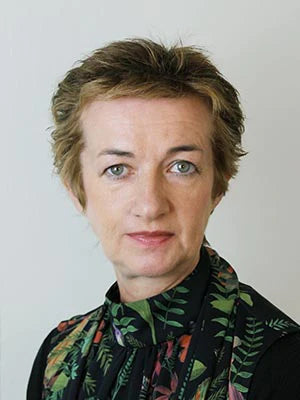
Shona Hamilton
Shona has worked at Napiers Clinic for 30 years where she has picked up a wealth of knowledge about various complementary therapies. She trained as a Food Sensitivity tester with The Health Partnership Company, where she was taught how to use the 3 point marker system.
No results found





































